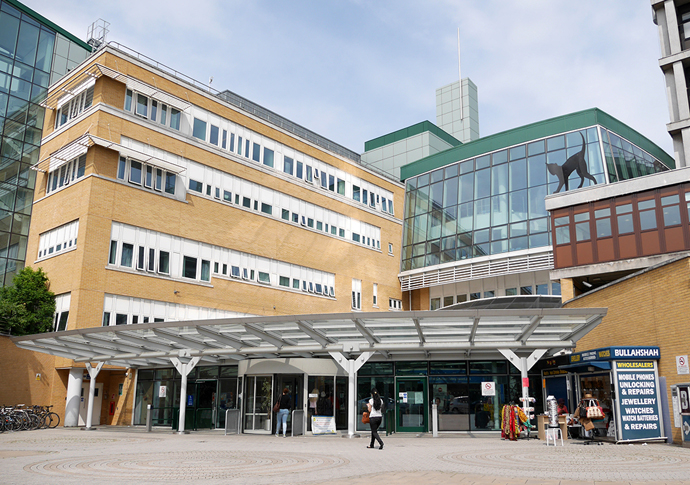So what is the health secretary up to?
FORUM: Professor Sue Richards of Islington Keep Our NHS Public looks at the Labour government’s plans for a ‘broken’ service
Thursday, 24th October 2024 — By Professor Sue Richards

The Whittington Hospital
Campaigners devoted to keeping the National Health Service public, rather than seeing parts of it privatised, as has been happening for the last few years, were cheered at the publication of the recent report by Professor Ara, the Lord Darzi.
He had been asked by the new secretary of state for health to provide a diagnosis of what was wrong with the NHS.
His report draws attention to the underfunding of the NHS over the last 14 years which has meant that service standards have fallen.
Darzi uses the word “catastrophic” about the changes brought in by the government in 2012, with an inappropriate use of the private sector combining with this underfunding to create the current situation where we have a “broken” NHS.
And with a prime minister who tells us he comes from an NHS family, surely we can put our campaigning boots away, satisfied we have done our job.
Not so fast.
The secretary of state seems to have other ideas.
He is not intending to change the structure, remit or personnel of the 42 Integrated Care Boards that make the key commissioning decisions for what is provided and by whom in the NHS.
While some of these ICBs will be keen to roll back the role of private healthcare, many will continue to contract out services in the hope of saving money.
This usually a false promise, as North Central London ICB found out in its disastrous dealing with American healthcare giant Centene where, in the end, they had to cancel the contract, waste a lot of staff time and put patients at risk by using failing GP services.
Darzi calls for more collaboration to get services to work together, and that just is not possible where one party is constantly seeking to serve shareholders rather than the public.
So now, this week, we saw the launch of a big conversation about the future of policy for the NHS.
The question raised is what is health secretary Wes Streeting up to?
He has already set up his own three priorities:
— moving from analogue to digital,
— from acute based care to care in the community, and
— from late stage treatment to early intervention and preventative health care.
From analogue to digital.
There has been a big story about patients being provided with wristwatches containing their NHS files.
The NHS has a major contract with Palantir to take it forward into the digital future. This is despite the morally questionable business it is involved in, using AI to provide targeting information for the Israeli army.
Streeting may be seduced by an all-singing digital future but we urge him to be much more modest.
Make sure the NHS has state-of-the-art systems so that its staff can log in without wasting time, patients records can be accessed by everyone who needs them and letters, texts and phone calls can be sent to patients to remind them of their appointments.
From a “national” NHS to a neighbourhood NHS, with much more done through primary care.
Good idea, but the United Kingdom has far fewer hospital beds per head than comparator countries.
So if, secretary of state, you are intending to pay for this new work in the community by closing hospitals, you will find, as when departments at the Whittington were threatened with closure a decade ago, that people will take to the streets to protect their local hospital.
Do not push us too far.
And finally early intervention and more preventative work.
Yes please.
But remember that what is needed is action on the wider determinants of ill-health, like poor housing, poor nutrition, stressful working environments.
To sort that out the prime minister will have to make Mission Government work, paving the way to the whole of government working together.
Sir Keir Starmer has sensibly put former Camden Council leader Georgia Gould in charge of that, so there is some hope there.
But we campaigners cannot yet retire.